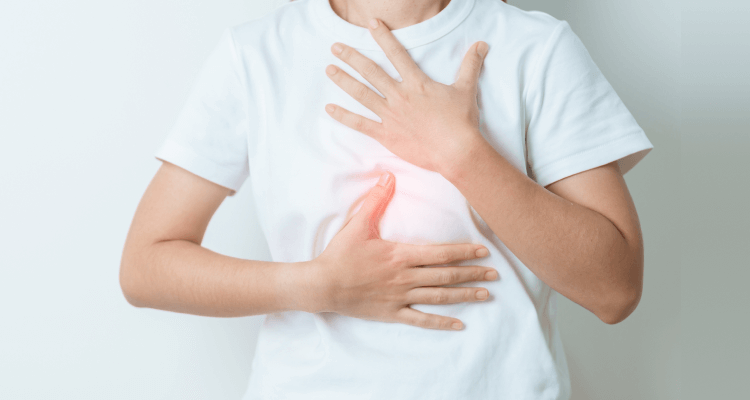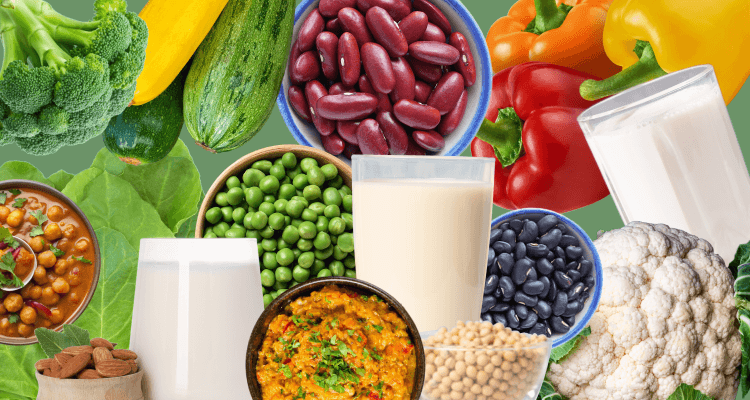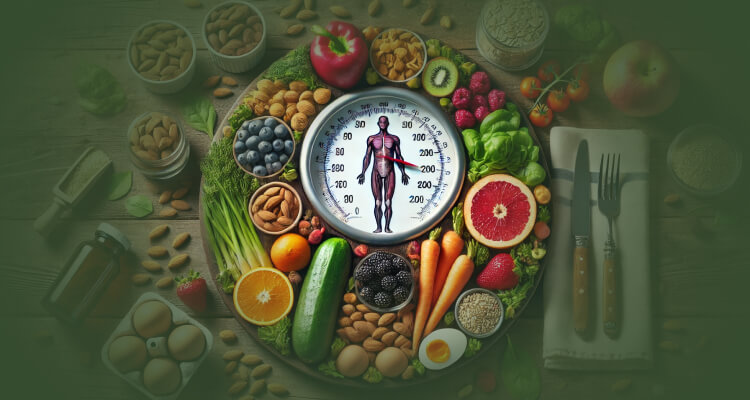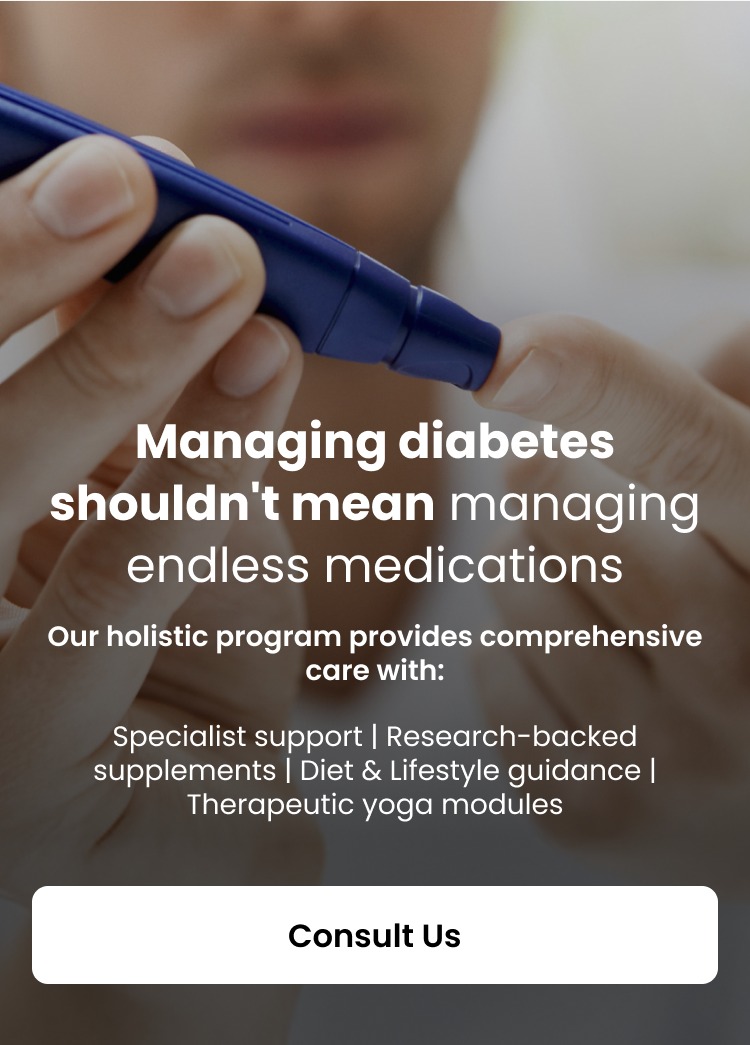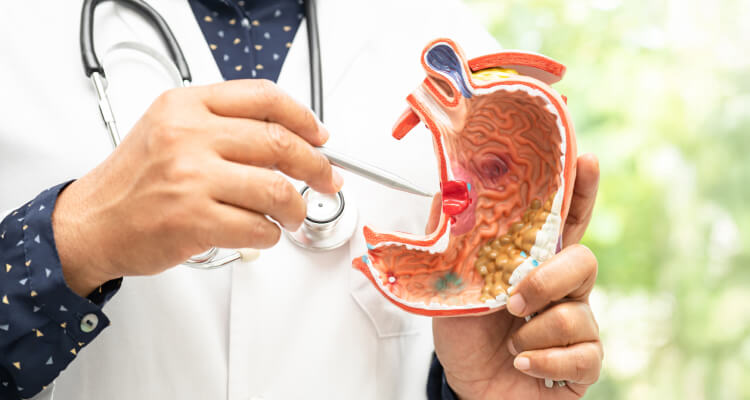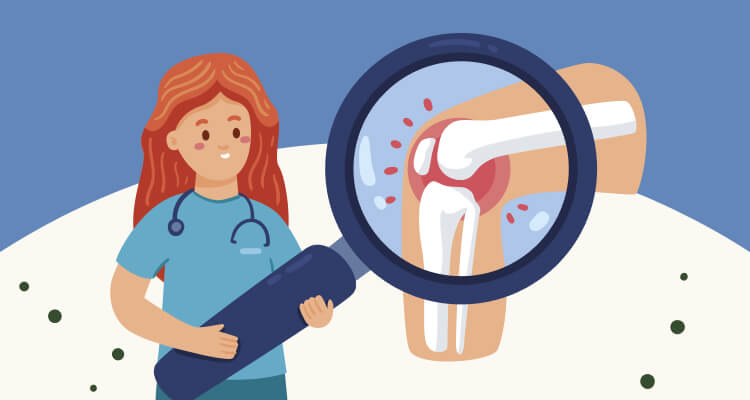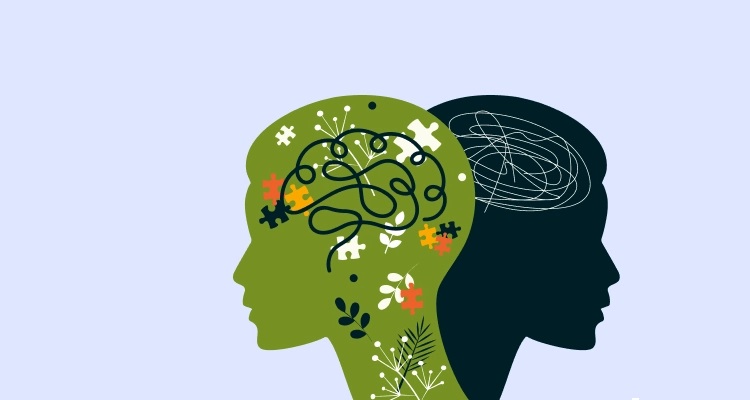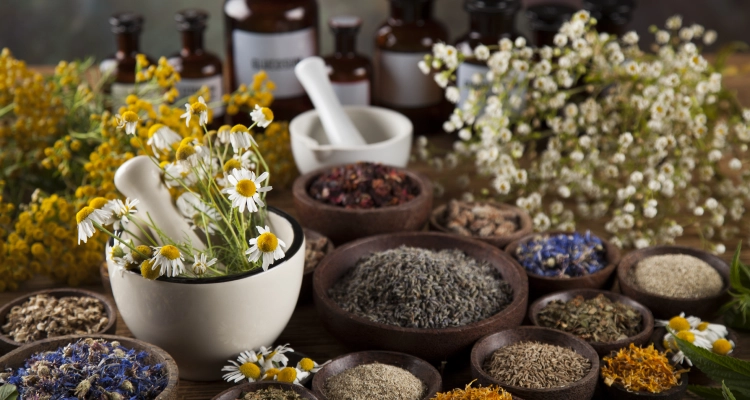What You’ll Learn from This Blog
Ever felt that burning discomfort in your chest or a sour taste creeping up after a meal? That’s likely acid reflux, something we all deal with from time to time. But when it keeps happening, it’s no longer just a nuisance. Frequent acid reflux can be a sign of something more serious—Gastroesophageal Reflux Disease (GERD). If you’re feeling these symptoms regularly, your body might be telling you that it’s time to pay closer attention
What is GERD?
Gastroesophageal Reflux Disease (GERD) is a chronic digestive condition in which stomach acid frequently leaks back into the esophagus, the tube that connects your mouth to your stomach. It happens when the lower esophageal sphincter (LES)—a ring of muscle at the end of the esophagus—weakens or relaxes too much, allowing acid to escape from the stomach.
Think of GERD as an ongoing version of the occasional heartburn you might feel after a spicy meal. While occasional acid reflux is a common and usually minor issue, GERD is more persistent and can significantly disrupt your daily life. It can cause symptoms like a burning sensation in the chest, a sour taste in the mouth, and discomfort that doesn’t seem to go away.
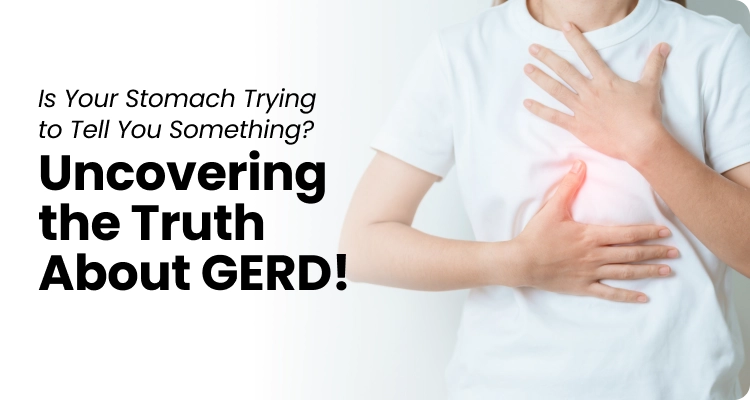
In simple terms, if you find yourself frequently battling that burning feeling or dealing with other uncomfortable symptoms after meals or while lying down, you might be dealing with GERD rather than just occasional acid reflux.
Let’s explore the early signs of GERD to help you manage it effectively.
Common Early Signs of GERD
Catching GERD early can make a big difference in how you manage it. Curious about what your body might be signaling?
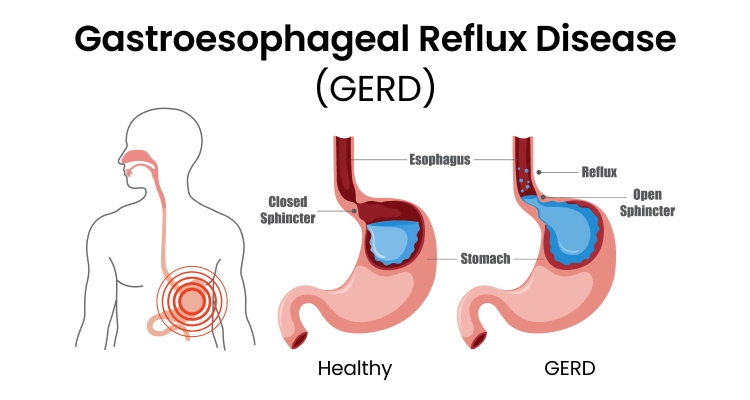
Here are some early signs that can help you spot potential issues before they escalate:
Burning or Discomfort in the Upper Abdomen: You might feel a vague, mild pain or a burning sensation in your upper stomach. It can feel like a dull ache or a gnawing discomfort, especially after eating a big meal.
What Happens If You Leave GERD Untreated?
If not addressed, GERD can lead to several serious complications.
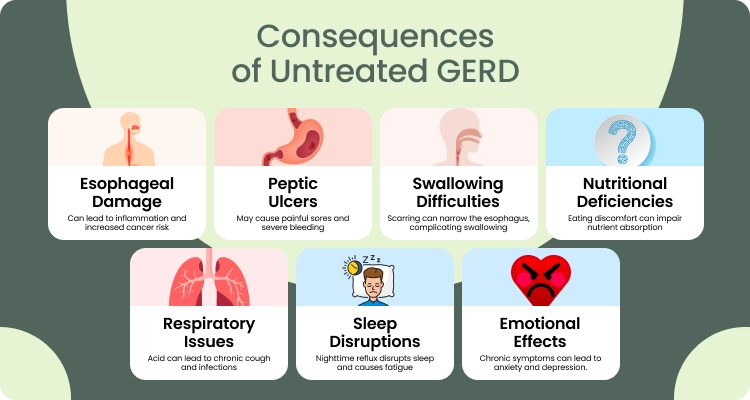
Here’s what you could encounter:
Treating GERD symptoms early can help you avoid these serious issues and improve your health and quality of life. If you’re experiencing symptoms, it’s important to get help and make the necessary changes to manage the condition with holistic solutions.
How Ayurveda Holistically Understands GERD
Ayurveda explains GERD (or Amlapitta) as a result of an imbalance in your digestive fire. When you consume foods that disrupt this balance and increase the body’s heat, the food remains undigested and produces harmful substances. The combination of indigestion along with an increase in body heat causes a person to experience the symptoms mentioned above. Sometimes, this could be due to your diet, habits, mental state, or even medication.
Dietary Causes
Habitual Factors
In Ayurveda, maintaining a balanced lifestyle is crucial for digestive health. Ignoring natural urges, such as bowel movements, or disrupting your sleep schedule can throw off your digestive balance and contribute to GERD.
Overindulging in activities like excessive bathing or swimming can also upset your digestion. Additionally, stressful routines that don’t align with your body’s natural rhythms can further aggravate digestive issues, disrupting the harmony needed for a healthy digestive system.
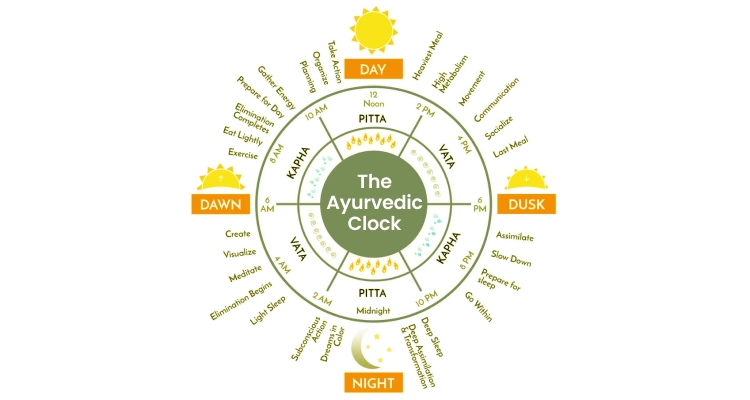
Psychological Factors
Your emotions are closely connected to digestive health. If you constantly feel anxious, angry, or sad, it can disrupt the balance of your digestive juices and affect how well your body processes food. This ongoing emotional turmoil can lead to GERD and other digestive issues by disturbing the natural harmony of your digestive system.
External Factors
If you’re taking certain medications, it can irritate your stomach and disrupt your digestion. Similarly, using detox therapies like Panchakarma incorrectly or excessively can upset your digestive system. It’s important to consult with Ayurvedic experts to make sure these practices are done right and fit well with your lifestyle. This way, you can avoid further digestive issues and maintain a balanced system.
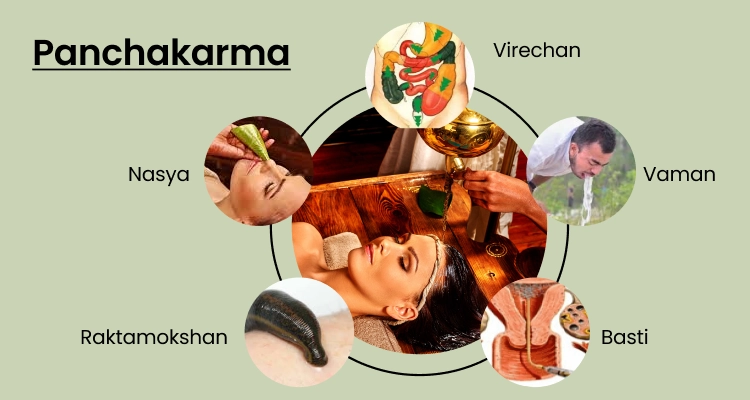
Your Journey to Digestive Harmony Begins Now
Living with GERD doesn’t have to feel like a constant battle. By embracing Ayurvedic wisdom through Live Your Best Life (LYBL), you’re not just treating symptoms but addressing the deeper imbalances that lead to discomfort.
We offer a holistic approach, blending personalized care with evidence-backed solutions like dietary adjustments, stress-relief techniques, and herbal support to bring lasting relief. It’s about listening to your body, recognizing early signs, and making mindful choices that support long-term digestive health. With our expert’s guidance, healing becomes a journey of nourishment, rooted in the harmony of traditional wisdom and modern science, helping you live your best life naturally.

